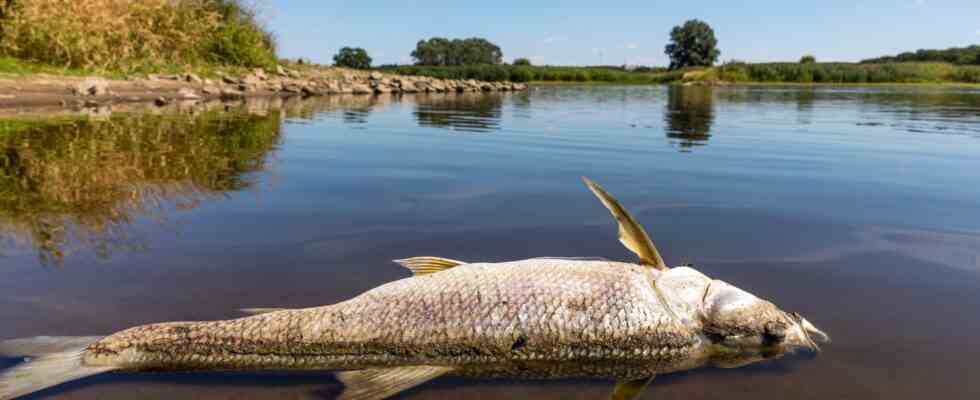Status: 12/28/2022 10:00 p.m
Tons of fish that died in agony – the disaster in the Oder caused dismay in Germany and Poland. But the investigation into the exact cause of the accident has been going on for months and threatens to peter out.
So far, the Polish side has not named the culprit or those responsible for the great fish kill: those who were responsible for the sharp increase in the salinity of the Oder last summer, which in turn – so the assumption – promoted the formation of algae and thus that too massive fish kills.
No evidence of illegal discharges
According to the responsible public prosecutor’s office in Wrocław, 400 witnesses had been interviewed by Christmas. So far, however, the investigation has not led to an indictment. The Polish environmental authority had previously announced that there was no evidence of illegal discharges. Agency chief Andrzej Szweda-Lewandowski said in September: “None of the inspected companies discharged more wastewater than usual. All discharges that we investigated had water permits.”
Which only allows critics to conclude that too much is being approved. And that especially in the summer months, when the sun, heat and low water levels affect the Oder even more than usual. According to research by the newspaper “Rzeczpospolita”, there are 751 discharge permits into the Oder or its tributaries. The authorities only refused the permit in one case, it is said.
WWF: “Lawfully Poisoned”
According to reports, the largest emitters include large state mining companies, industrial companies and the state copper promoter KGHM – who, however, with reference to business secrets, do not let themselves be looked at. Piotr Nieznanski from the Polish branch of the nature conservation association WWF says:
To put it simply, the Oder was lawfully poisoned if one looks to see that these permits have been issued and also checked that no one has exceeded the permitted amounts.
It is not known that approvals have now been restricted as a result. This raises a frown in the Polish environmental authority. In any case, Deputy Environment Minister Jacek Ozdoba did not fundamentally contradict German warnings that the salinity of the Oder had already reached a level again that led to the ecological catastrophe in the summer.
The salt content is enormous and could actually lead to another increase in toxic substances. And thus also to a fish kill, “as long as the problem with the discharges is not solved,” warns Ozdoba. “We should really think about this.”
Party affiliation instead of expertise?
But the discharge permits are within the competence of the Polish water authority, according to the Deputy Environment Minister. This is an institution newly created by the PiS government, whose employees, as has been surreptitiously criticized, were often selected more for party affiliation than for expertise.
And the pressure, also from Germany, to finally name horses and riders when it comes to the introduction, produces counter-pressure in political Poland: When it comes to other issues, too, PiS boss Kaczynski likes to say that the environment only serves Berlin as an excuse to help Poland economically to keep small.
No Consequences? Poland and the Oder disaster
Jan Pallokat, ARD Warsaw, 28.12.2022 9:10 p.m

